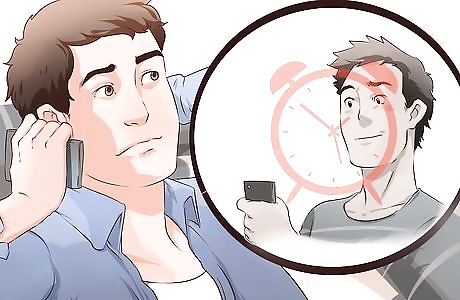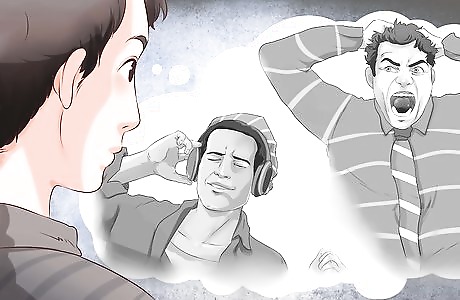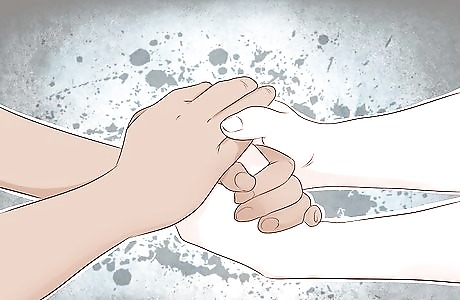
views
Evaluating the Time You Spend With Your Friends

Assess which of your friends asks you to hang out the most. Best friends want to spend time with you. They set aside blocks in their schedules to spend with you. Best friends plan fun activities and adventures to experience with you. Additionally, you frequently ask them to spend time with you too!

Determine which friends you spend the most time with. Best friends are intentional about spending time with you. Your best friends attend all of your major life events, such as weddings and funerals. They are present at all of the little events too--from small birthday parties to your home sporting events. Often, you hang out “just because”--no special occasion is needed to bring you together.

Consider why you spend time with your friends. Best friends spend time together because they genuinely enjoy one another’s company. Best friends aren’t seasonal friends--they are there for you year-round, not just when school is in session or football is in season. Your best friends don’t spend time with you only when it is convenient for them or they want to use your swimming pool.
Assessing Your Friends’ Communication Skills

Consider which of your friends are the best listeners. Best friends are active listeners. When you speak, your best friends should give you their full attention--your BFF’s phone should remain in a pocket, purses, or on a table.

Determine which friends only talk about themselves. Best friends want to hear about each other’s struggles and triumphs, fears and dreams. Friends that constantly turn the conversation back to themselves are not your best friend. Friends that never ask you about your life or how you are feeling are not interested in getting to know you. If you or your friend has had a rough day, one person may dominate more of the conversation.

Evaluate your friends’ response times. Best friends respond to your text messages. They return your calls. They pick up the phone--even if you ring them at the early hours. Friends that fail to respond, or gets around to it when they feel like it, are not reliable communicators. Don't think they are unreliable if they don't answer you at the early hours, they probably need a rest.
Considering Your Friends Loyalty to You

Determine which of your friends can keep a secret. When you share a secret with your best friends, they shouldn't tell the next person they bump into! Your relationship with your best friends is built on mutual trust and respect. They don’t spread rumors about you, they squash them!

Decide which of your friends have your back. Best friends stand up for each other no matter the circumstances. Best friends stick up for you when you can’t defend yourself. They don’t join in on the bullying, add to the teasing, or spread a rumor about you!

Evaluate your friends’ willingness to forgive you. Everyone makes mistakes--even best friends. Best friends don’t hold grudges or give each other the silent treatment. Instead, they allow each other to explain why they are upset. They take part in a dialogue--not a screaming match. They apologize for their misgivings and learn from their mistakes. At the end of a fight, best friends forgive each other.
Determining if Your Friends Support You

Consider which of your friends are truly happy for you. When you experience success, your best friends should be the first people to congratulate you. Best friends are not competitive with one another but supportive of each other. Jealous friends are not your best friends.

Evaluate their ability to encourage you. Best friends give each other an extra boost of confidence before an exam or a job interview. They build each other up with positivity, instead of tearing each other down with negative criticism. Best friends don’t belittle each other.

Decide which of your friends are positive influences. Best friends hold each other to higher standards. Your best friends should steer you towards positive influences and decisions because they care for your safety, health, and happiness. Friends that place you in an awkward, embarrassing situation or don't respect your boundaries do not have your best interest in mind.
Reaching a Conclusion

Reflect on your answers. Take some time to think about your answers to these questions. Spend a few hours journaling or go for a long walk.

Talk to your best friends. Once you have processed the information, make an effort to talk to your best friends. Let them know how much you appreciate them! Write them a card, take them out to dinner, or make them a pan of your famous brownies!

Continue to work on your friendships. Now that you have figured out who your best friends are, focus on further developing your relationships with them. Continue to spend time with them, make an effort to be present at all of their major milestones and minor events. Keep the lines of communication open and never take your best friends for granted! Discuss your boundaries so that your friends are clear about what you need to feel safe and supported in the friendship. Make sure you're giving as much as you're receiving in the friendship.
















Comments
0 comment